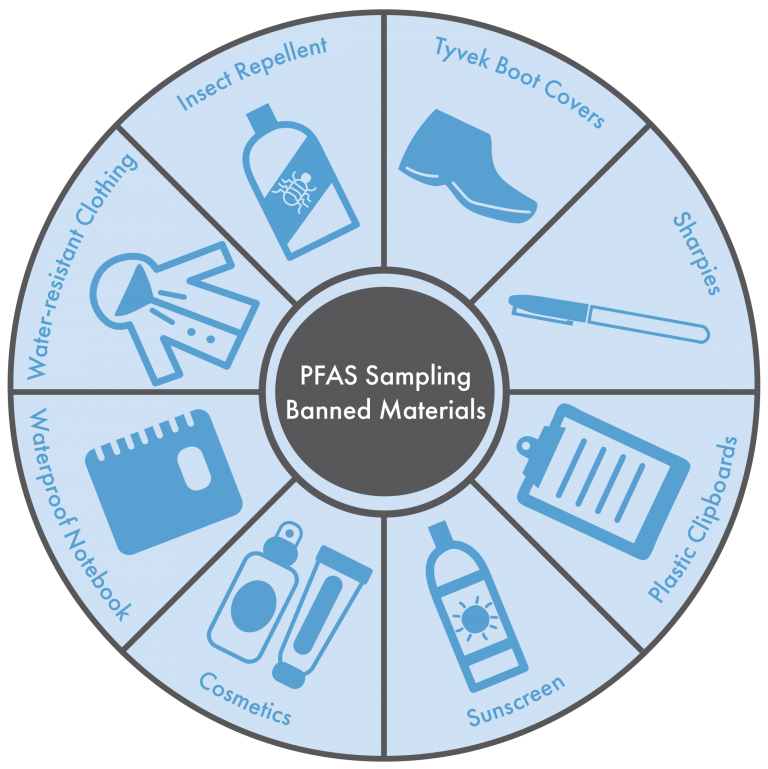Chemists have identified how to destroy “forever chemicals” in a low-cost way for the first time, new research says.
Scientists have linked exposure to the substances, known as PFAS, at certain levels to serious health risks, including cancer and birth defects.
Their resistance to water, oil, and stains make them highly useful. PFAS are used in hundreds of everyday objects from frying pans to make-up.
But it is these properties that make them so difficult to destroy.
PFAS stands for poly- and perfluoroalkyl substances. There are around 4,500 of these fluorine-based compounds and they are found in almost every dwelling on Earth in products including food packaging, non-stick cookware, rain gear, adhesives, paper, and paints.
They have been identified in low levels in rainwater globally — but if they infiltrate water or soil in high level, they can become a serious concern.
Research is ongoing to determine how different levels of exposure can lead to various health effects.
“There is an association between exposure and adverse outcomes in every major organ system in the human body,” Elsie Sunderland, professor of environmental chemistry at Harvard University, tells BBC News.
Existing methods to destroy PFAS, such as incineration, have not been very successful — they require extremely high temperatures, which is expensive.
New research from scientists at Northwestern University, U.S. claims to have done the “seemingly impossible” and destroyed PFAS using low temperature and cheap products.
This could be very useful in helping communities suffering from high-level contamination, according to Sunderland, who is not part of the research team.
The reason PFAS have historically been so difficult to destroy is because they contain many carbon and fluorine bonds — the strongest bonds in organic chemistry.
But it is these bonds that repel liquids — known as omniphobic — and make them very useful for the pharmaceutical and food industries.
The research team, led by Brittany Trang, identified a new mechanism to break down the PFAS by using a common chemical called sodium hydroxide, which is used to make household products such as soap and painkillers.
They targeted a group of weaker charged oxygen atoms that sit at the end of the long tail of carbon-fluorine bonds.
The process effectively “decapitated the head group from the tail,” and the PFAS began to fall apart, leaving only harmless products.
Trang says the results are “exciting because of how simple — yet unrecognized — our solution is.”
“This could be a breakthrough if it is low cost,” chemicals policy lead and fellow of the Royal Society of Chemistry, Camilla Alexander-White, tells BBC News.
The team of scientists hopes that with further research PFAS could be filtered from drinking water and this new method applied to destroy the contaminants.
However, treatment of high concentrations of PFAS is only one part of the solution.
With PFAS remaining in production it can continue to build up at low levels in fish and other wildlife as it cannot be broken down naturally very easily.
Alexander-White says that PFAS should only be used in products and processes that are vital for society and for which there is no alternative.
This new method was applied to the 10 most prominent types of PFAS, but the US Environment Protection Agency has identified more than 12,000.
William Dichtel, one of the co-authors and professor of chemistry at Northwestern remains hopeful: “There are other classes that don’t have the same Achilles’ heel, but each one will have its own weakness.”
The research has been published in the journal Science.
https://www.bbc.com/news/science-environment-62561756


